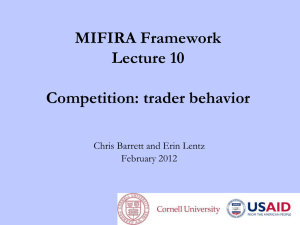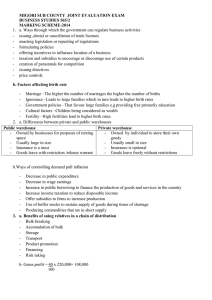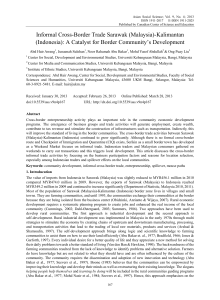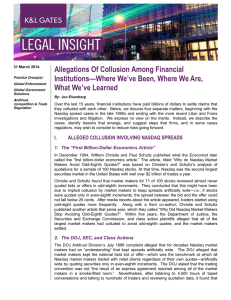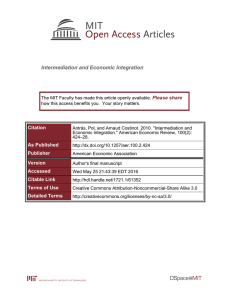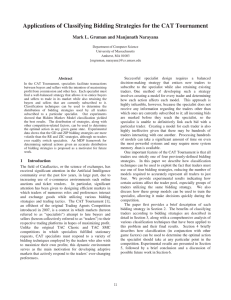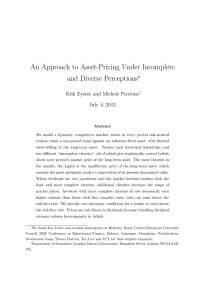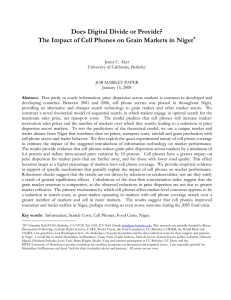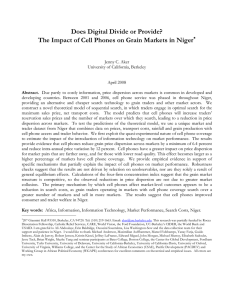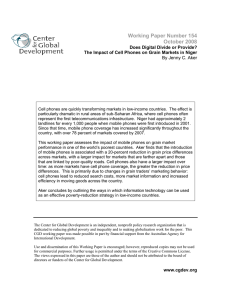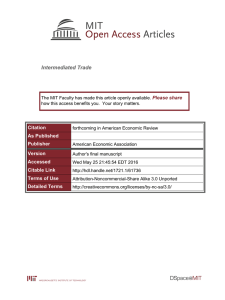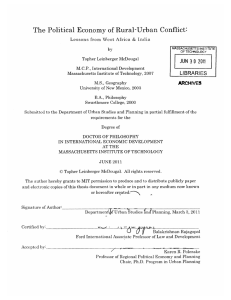Paul Brenton Trade Practice Leader Africa Region
advertisement
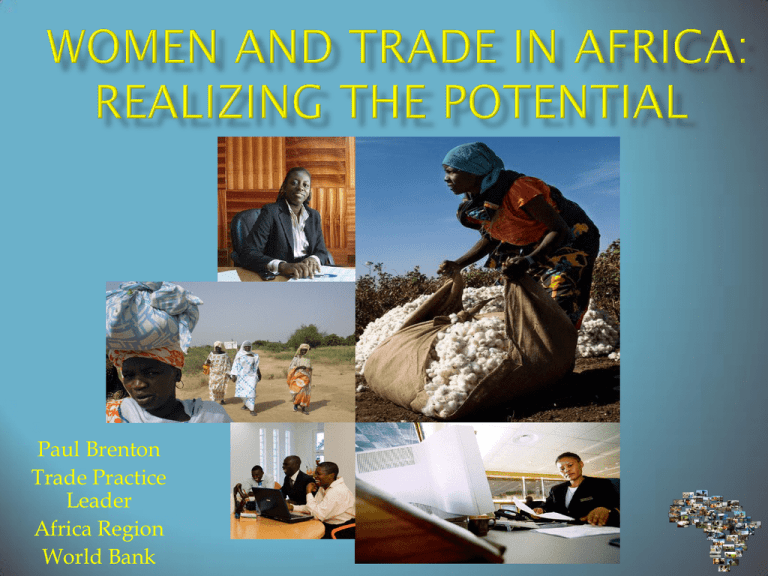
Paul Brenton Trade Practice Leader Africa Region World Bank Cross-border traders Producers of traded goods and services Entrepreneurs who manage export firms Lack of data and awareness Lack of analysis Lack of representation in trade policy discussions Lack of transparency and awareness of rules Difficulties in obtaining required documents Access to trade information and trader networks Poor conditions and harassment when crossing border A Charter for cross-border traders Supported by measures to change behaviour Traders processed Basic rights and efficiently, without obligations for traders discrimination or harassment; and officials Physical checks of traders must be recorded with the reason and outcome provided. All duties, fees and taxes and methodology are publicly available at the border; Documentary requirements should be clearly stated and publicly © Susan Novak available at the border; With the support of the international community, governments commit to: ©Stevie Mann/World Fish Visible communication of basic rights and obligations at all border crossings; All senior officials and 50% of officials received gender awareness training; At all border posts traders can register violation of basic rights; Apply strict disciplinary measures against abusive officials; Exports limited by relative lack of access to key inputs for women Women excluded from trader networks Services trade offers new opportunities for women ownership more likely for services firms But in some sectors (tourism) limited to low-wage jobs In professional services conditions enabling participation as favourable in Africa as elsewhere Female run firms just as likely to export But women-owned firms concentrated in low export intensive sectors Women-owned firms smaller and operate across more sectors – a strategy of risk aversion Female-led exporters more likely to export regionally than globally Key role for regional integration Recognise role that women play in trade Clear and transparent regulations governing trade Simplify trade requirements Effective design of interventions to facilitate trade Assist women to address risks they face in trading Marcelo M. Giugale, Director, Economic Policy, World Bank Africa Region, “The potential benefits are huge and obvious: better food security, faster job creation, more poverty reduction, and less gender discrimination. This is a win-win-winwin reform agenda that is ready for action.” Now also showing on Vimeo www.worldbank.org/afr/trade

